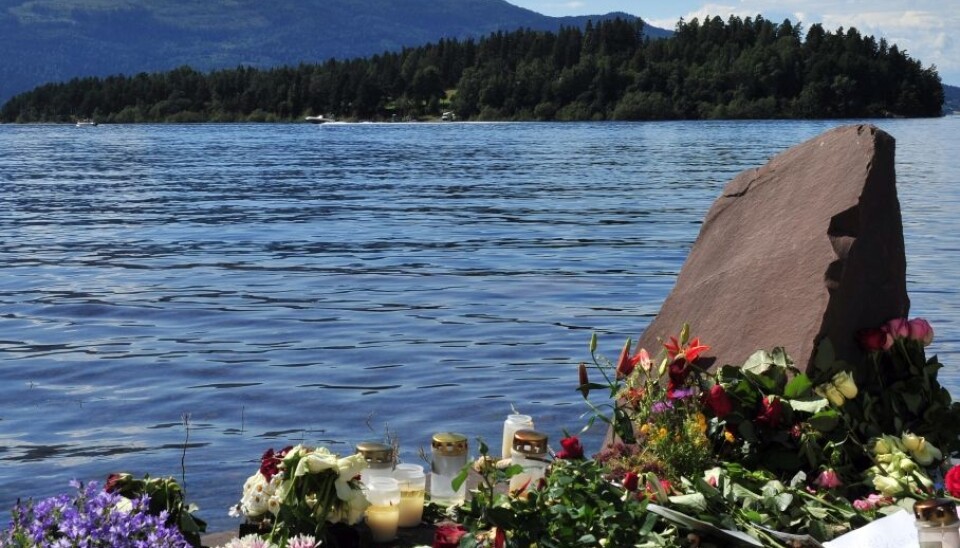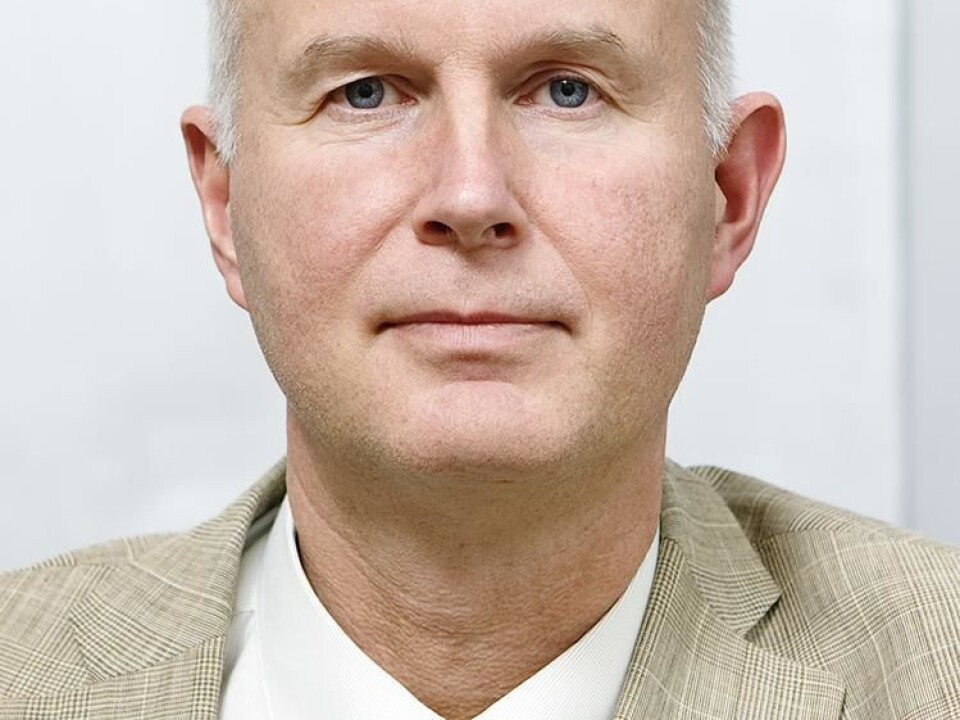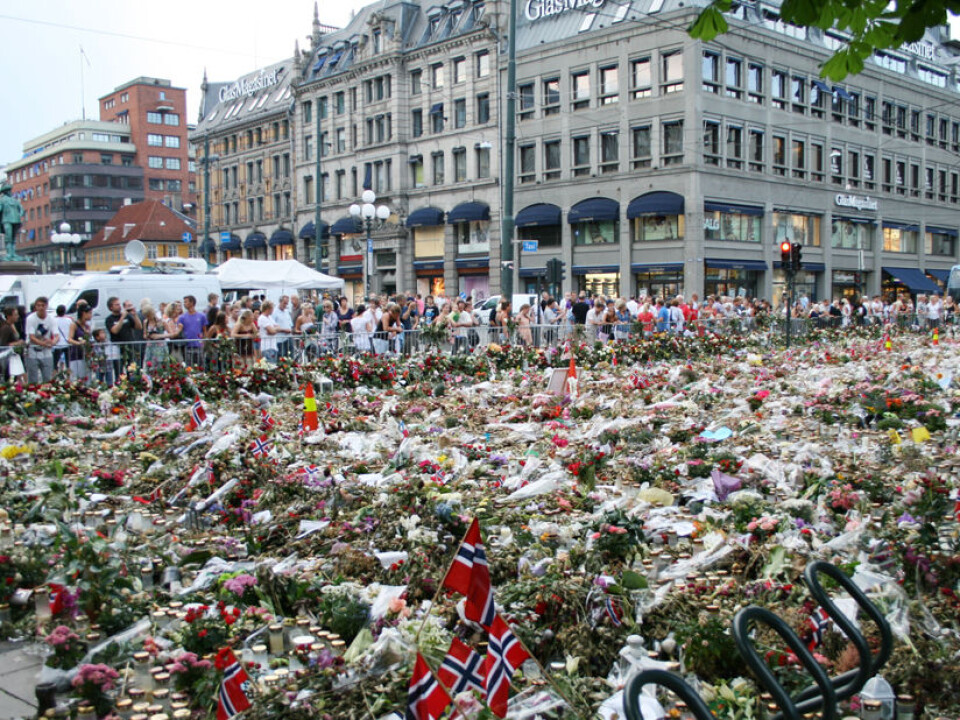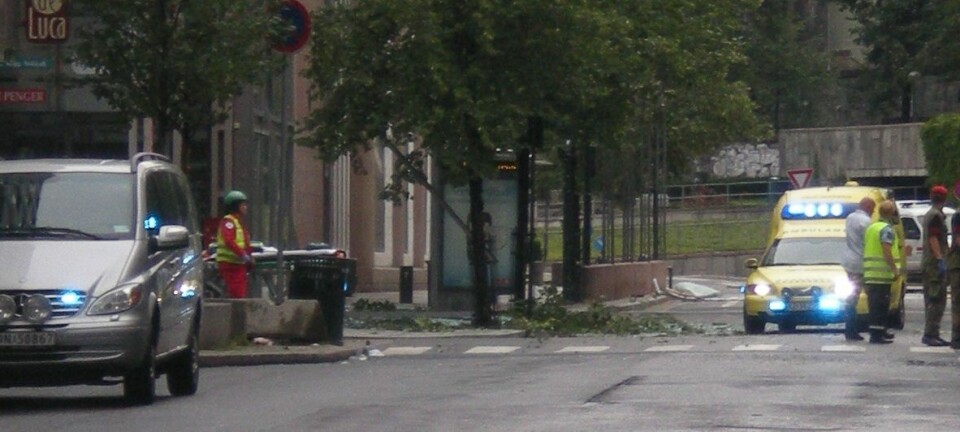
Terror victims will get research protection
Norwegian authorities want to minimise future trauma for victims of the massacre on 22 July last year by coordinating all research on the terrorist attacks through a national body.
Denne artikkelen er over ti år gammel og kan inneholde utdatert informasjon.
Norwegian health authorities seek a complete overview of data collection and want information about new and ongoing research projects on the attacks.
A national coordinating agency for research about the aftermath of 22 July will be set up.
This was the dark day when a right-wing Norwegian man killed eight and injured 92 in a car bombing of government buildings and then made his way to a summer camp where he shot and killed 69 and wounded 60 more.
Bjørn Guldvog, Assistant Director at the Norwegian Directorate of Health, thinks the research community could put too much pressure on the surviving victims and others who were directly impacted by the 22 July terrorist attacks.

“We want to ensure that researchers gather information in ways that are acceptable to those who were victimised,” he says.
Guldvog points out that survivors, families and friends of the killed and injured are all of interest for groups such as researchers, the media, police investigators as well as the 22 July National Commission.
Initially the health authorities want the researchers to inform them about their plans. Evaluations can then be made on ways they can cooperate where they overlap each other, thus minimising the extra burden on those who are affected.
Information will not be held back
Protection and care for the survivors of the massacre, many of them in their teens, are the main reason for coordinating and adapting research activities.

“This doesn’t mean researchers will be denied access to relevant information,” says Guldvog. "But it’s unnecessary for several different research centres to carry out separate studies reiterating questions."
He thinks this would not only compound the burdens of the victims but would also yield inferior responses and research results.
Strides are currently being made to establish a national public body to coordinate such research initiatives.
No desire to control research
Meetings are now being held by the Ministry of Health and Care Services, the Directorate of Health, research centres in the country and others, which will outline a plan. The coordinating body is expected to be established this spring.
Guldvog stresses that Norwegian health authorities want all research linking to 22 July to be as thorough and accurate as possible.
“We certainly have no desire to hamper or control any such research conducted by Norwegians or by foreigners,” he says.
There’s no denying that the terror attack on 22 July is a very special incident in Norway’s history.
“One of the goals of a coordinating body will be to make sure participation in research projects doesn’t prolong the negative consequences for those who were affected,” says Guldvog.
For many persons it’s painful and burdensome every time they have to recount these traumatic experiences.
"Decisions have to be made regarding how much and how often victims need to be exposed to this sort of contact," says Guldvog.
Solid terror research needed
Guldvog refrains from speculating on how the situation will be handled when several research bodies present projects that overlap.
The assistant director has no doubts about the value of research on victims of the 22 July attacks.
He clarifies that it would be very useful to know more about the efforts of the health services and whether initiatives taken after the attacks have worked. In general, they could use some strong research on the consequences of terrorism.
“We need a better understanding of how to care for the victims,” says Guldvog.
Translated by: Glenn Ostling
































